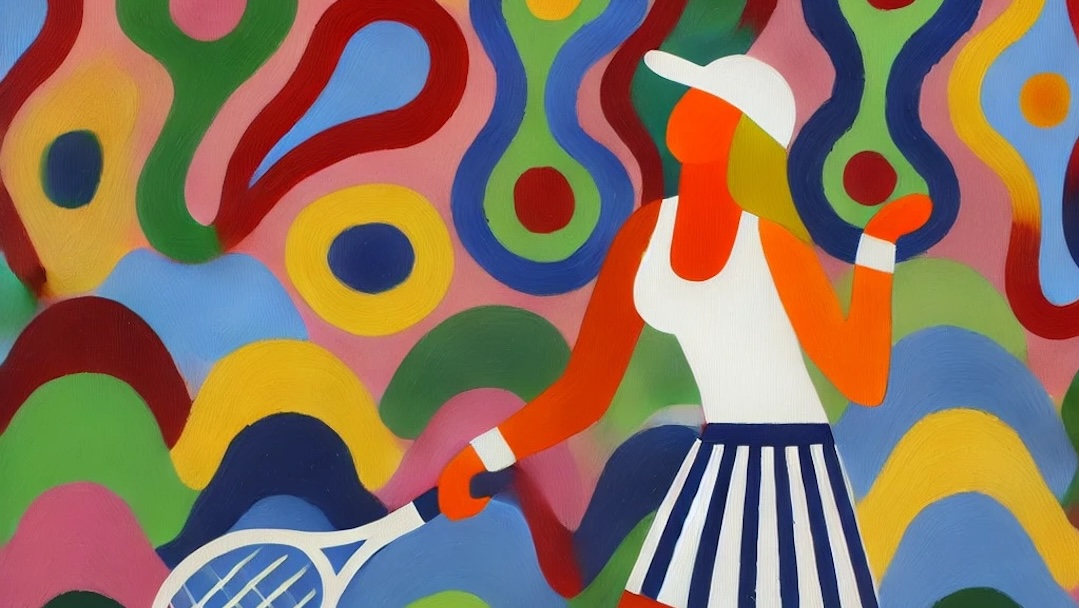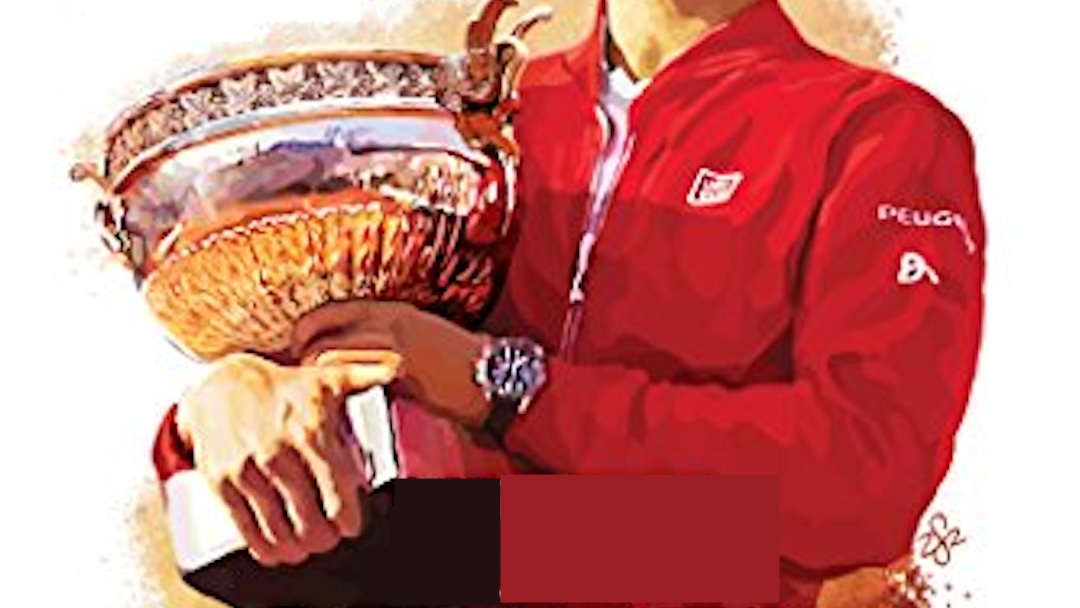Scarlett Thomas is an acclaimed British novelist who was prompted to return to competitive tennis following a series of personal crises when she was 41. While the author had played tennis in her youth, she abandoned the sport when she was 14. Her return became an obsession. As it turns out, obsession is not always a healthy thing.
41-Love: On Addiction, Tennis, and Refusing to Grow Up is a memoir not unlike the experience of many others who have returned to the sport as an adult. Thomas describes the learning curve of new stroke mechanics, equipment, and clothing. She also came into the experience with a common junior bias for singles. In Scarlett’s own words from the book, she believed that “doubles is for fat losers who can’t run.” Of course, she does eventually play a lot of doubles.
Scarlett somehow manages to win the first local tournament that she entered. The trophy became the proud centerpiece of her mantle. It also sparked a competitive drive to win more and more tennis awards. In fact, that pursuit became the singular most important part of Scarlett’s life.
As a successful novelist, Scarlett could spare both the money and the time for a lot of paid coaching. That also sparked an interesting examination of whether “buying” success is culturally acceptable in tennis. Scarlett wrote of her perception that the tennis community looks down on people who take a lot of lessons. That was somewhat illustrated by one of the desk staff at her club once observing “Spend all your pocket money on tennis lessons, don’t you?”
Even though the author’s obsession with tennis only lasted a little more than a year, she managed to pack in a rich spectrum of tennis competitive experiences. Scarlett competed on several of her club’s league teams which exposed her to the seedy politics of team tennis. She even agreed to captain a team, which turned out to not be the experience anticipated.
Scarlett’s tournament play provides an interesting glimpse into how Britain’s Lawn Tennis Association (LTA) operates. For example, the LTA simultaneously uses both ranking points and performance ratings for tournaments. The author guides us through her own self-ratings journey which included irritating her local club for rating herself “too high.” Scarlett also came to the realization that players don’t want to be the highest-rated player in a tournament because there is nothing to gain ratings-wise.
The author also participated in an LTC “Box League.” That format places players into groups of four with similar ratings. They separately arrange a match with each of the other three. This is similar to flex-leagues that are operated in my local area but with a much more manageable number of people to work with on scheduling. Additionally, the LTC box league described in this book included mixed genders for singles play.
41-Love brought fresh perspectives to a theme that resonates with me. Scarlett described the indignity of traveling to a tournament only to find that the format was short sets. She was quite irritated to have spent the time and expenses for what turned out to be a minimal amount of tennis.
The penultimate chapter in the book details Scarlett competing at Senior Wimbledon. The tournament is run as a “closed” event which means that it only accepts entries from people with residency within the LTA’s boundaries. Other than that, it operates similarly to the USTA Level 1 tournaments that play in historically significant venues. Scarlett wrote a commissioned piece for The Guardian that describes her experiences at the All England Club during that tournament.
When I reached the sudden and dramatic conclusion to 41-Love, my first thought was that it didn’t actually contain anything about the addiction part of the subtitle. It was only then that I realized that the addiction was tennis. Scarlett started regarding the sport as a spiritual journey filled with endurance, patience, and striving to be your best. That is healthy… until it isn’t.
In 41-Love: On Addiction, Tennis, and Refusing to Grow Up, Scarlett Thomas makes the writer’s observation that there is drama in suffering. The most compelling stories are usually not happy. This illuminating personal account of adult competitive tennis is both an inspirational and cautionary tale.
 | 41-Love: A Memoir |
- Love match: how I finally got to play at Wimbledon, Scarlett Thomas, The Guardian, September 6, 2014.



